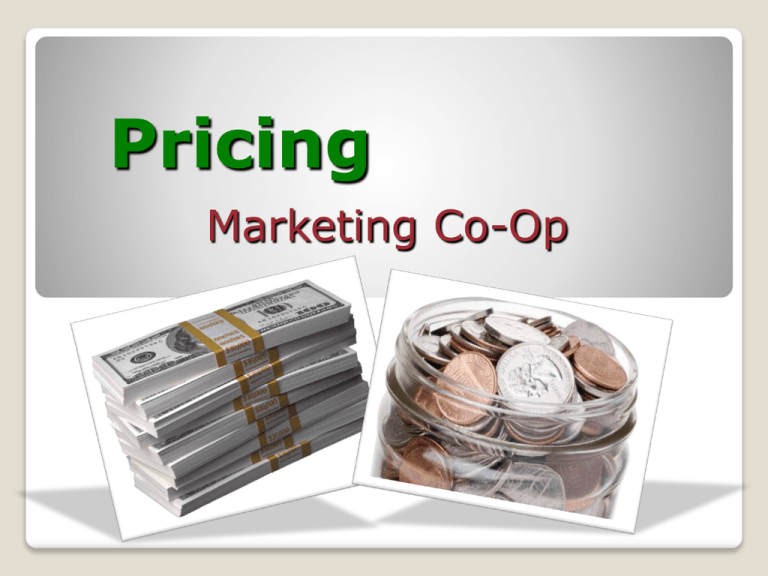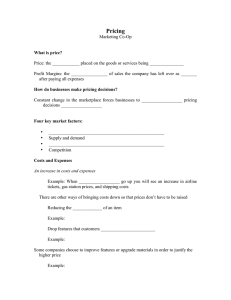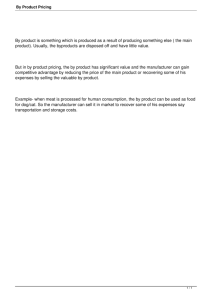Pricing Marketing Co-Op
advertisement

Pricing Marketing Co-Op What is price? Price: the value placed on the goods or services being exchanged Profit Margins: the percentage of sales the company has left over as profit after paying all expenses How do businesses make pricing decisions? Constant change in the marketplace forces businesses to review pricing decisions frequently Four key market factors: 1. 2. 3. 4. Cost and expenses Supply and demand Consumer perception Competition Costs and Expenses An increase in costs and expenses Example: When oil prices go up you will see an increase in airline tickets, gas station prices, and shipping costs How else would the businesses maintain their profit margins? There are other ways of bringing costs down so that prices don’t have to be raised Reducing the size of an item Drop features that customers don’t value Making a candy bar 3.5 oz. rather than the normal 4 oz. Airlines have stopped serving in flight meals Some companies choose to improve features or upgrade materials in order to justify the higher price Costs and Expenses A decrease in costs and expenses Aggressive firms are always looking for ways to increase efficiency and decrease costs This helps them be competitive in the marketplace Improved technology and less expensive materials may help create better quality products at a lower price Costs and Expenses Break even point – the point at which sales revenue equals the costs and expenses of making and distributing a product After this point businesses will start to make profit Supply and Demand As the price of a product goes up, what happens to the demand? And supply? How about when the price goes down? Consumer Perceptions ● Some customers equate price with quality ● They believe a high price reflect high quality, status, prestige, and exclusiveness Companies create this perception by: Limiting the supply (ex:Wii) Limited edition Superior customer service or added services for customers Competition When two products are very similar, price often is the sole basis on which customers make their buying decisions. Customers are more willing to buy the less expensive brand if they see no difference between the products Now it’s time for some FUN!


